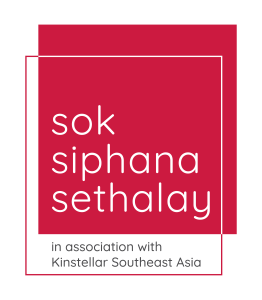Land in Laos is considered as part of the national heritage and as such is deemed to be owned by the national community. In terms of ownership the Government of Lao PDR (“GOL”) grants its citizens the right to use land, or they may grant a concession over the land to foreigners via a concession agreement. Thus under the Lao context the definition of ownership can be said to be based on the level of land use rights granted to the individual or legal entity according to the Law on Land No. 04/NA dated 21 October 2013 and the contract existing between the parties.
Under the law, Lao citizens can acquire permanent land use rights, which amongst others includes land protection right, land use right, land usufruct right, right to transfer land use rights, and right to inherit land use rights. The land would be leased from the GOL to a Lao citizen for a period of 30 years, which upon application can be further extended. As land can only be leased to a Lao citizen, foreign individuals or legal entities can only hold land via lease from a Lao citizen or under a concession from the GOL, through which temporary land use rights will be granted.
The following is a list of frequently asked questions associated with the ownership of land and property in Laos.
Frequently Asked Questions
Q: Is there any restriction on the ownership of any interest in land by foreign individuals and entities under the Lao laws?
A: Foreign individuals and foreign-invested companies, including joint-ventures, cannot own land in Laos. They are restricted to: (i) leasing land from Lao citizens or the GOL, or (ii) receiving land concessions from the GOL. Below are types of lease/concession arrangement and their maximum duration of lease.
| Types of Lease/Concession Arrangement | Maximum Duration (May be extended subject to relevant approvals) |
| Lease or concession by the GOL to aliens/ foreigners | 30 years |
| Lease by Lao citizen to aliens/ foreigners | 20 years |
| Lease or concession by the GOL to foreign investors | 50 years |
| Lease by Lao citizen to foreign investors | 30 years |
Foreign investors are entitled to own structures and developments that they build or purchase on leased or concession land. However, title to such structures and developments will be transferred automatically to the lessor of the land in which such assets are situated upon the expiration of the lease or concession term.
Q: Can foreign investors use land leased from Lao citizens or the GOL to secure their loans?
A: Under the Lao laws, a debtor must be the owner of the immovable asset that is to be secured or has received the authorisation in writing from an owner of such immovable asset to be secured.
Therefore, the foreign investors can use the land leased from the Lao citizen or the GOL to secure their loans only if a prior consent from the owner (either a Lao citizen or the GOL) has been granted.
Q: What is the legal proof of ownership on land?
A: Apart from the State Land Map (land owned by the State), there are two types of titles available in Laos:
- Land Title – a document which is considered as official evidence for permanent land use rights is issued by the provincial or city Land Management Authority; and
- Land Certificate – a document which is considered as official evidence for temporary land use rights of agricultural land or forest land is issued by the district or municipal Land Management Authority.
However with regards to buildings (houses, apartments and structures) there is no legal document for the proof of the ownership available in Laos. Additionally, the Land Title does not provide for ownership registration of buildings that are constructed on the land.
Q: Is it possible to verify the authenticity of Land Titles with the relevant Lao government offices?
A: Under Lao laws, only land owners are able to request for the certification of validity or authenticity of the Land Title by submitting the application to the provincial, city, district or municipal Land Management Authority where the land is located.
The relevant Land Management Authority must consider and issue the certificate of validity or authenticity of the Land Title within 3 official working days from the date of receipt of the application.
Q: What is the legal proof of ownership on motorised road vehicle and machinery?
A: A vehicle ownership registration certificate and vehicle plate which are issued by the Vehicles Registration Unit, Driving and Vehicle Management Division, Department of Public Works and Transport are evidence of ownership for motorized road vehicle in Laos.
As for the machinery, since there is no public system of ownership registration certification for machinery in Laos yet, its legal ownership document is not available.
If you have any questions or require any additional information, please contact Aparat Sanpibul or the ZICO Law you usually deal with.
This alert is for general information only and is not a substitute for legal advice.



